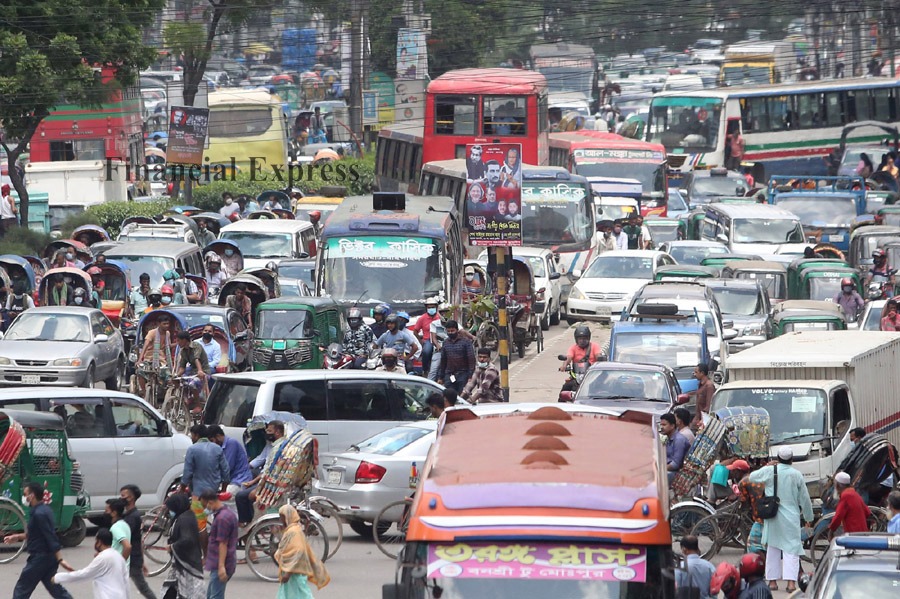
Published :
Updated :

The sorry state of the road transport system in the country with rampant mismanagement and corruption plaguing it at every turn is no secret. However, the recent revelation by the Transparency International Bangladesh (TIB) has brought to light a massive scale of corrupt practices deeply entrenched within the system. According to a TIB study released this week, private bus operators across the country shell out a staggering Tk 10 billion annually in extortion and bribes. Shockingly, the beneficiaries of this network of corruption include individuals or groups affiliated with the ruling party, traffic and highway police, the Bangladesh Road Transport Authority (BRTA) officials, transport associations, labour unions, and even municipal or city corporation representatives.
The TIB report, titled 'Integrity in the Business of Private Bus Owners', also sheds light on the disorder and a lack of transparency in the road transport sector dominated by private operators. The report alleges that the sector is heavily influenced by ruling party-linked political leaders who have facilitated the environment of extortion and illegal transactions. The study found that no external audits were conducted or submitted to the Registrar of Joint Stock Companies (RJSC) in more than eighty per cent of cases involving the 1,155 bus companies and 65 owner associations registered with the RJSC as of 2023. It also found that around 90 per cent of the illegal transactions occur within the BRTA during processes related to driving licences, fitness certificates and route permits. The study report is based on a month-long survey conducted from September to October 2023.
That the country's road transport system is marred by corrupt practices of all sorts has been flagged time and again in the media with the BRTA often singled out as a breeding ground of bribery. A TIB report years ago had identified the BRTA as the most corrupt organisation in the country, shedding light on its extensive and intricate networks of bribery. Clearly, media reports and TIB finding did not help improve the situation at all. The latest TIB study underscores a lack of enforcement of the Road Transport Act introduced in 2018, further exacerbating the system's woes. Coupled with an uneven playing field dominated by a handful of major companies, this lack of competition creates a fertile ground for exploitation. Financial irregularities abound, with hidden costs undisclosed, and a significant number of bus companies having direct links with the ruling party. Shockingly, over two-thirds of bus workers exceed the legal limit of eight working hours per day, often leading to fatigue-induced safety hazards as drivers are forced to work without designated substitutes.
The pervasive influence of various groups benefiting from corrupt practices has rendered enforcement and the rule of law virtually nonexistent. Given the situation, the question one cannot but confront: is it the lack of political will that perpetuates the dismal state of the road transport system? The entrenched interests at play seem to make the implementation of the Road Transport Act an impossible task, leaving citizens to suffer the consequences of a deformed system.


 For all latest news, follow The Financial Express Google News channel.
For all latest news, follow The Financial Express Google News channel.